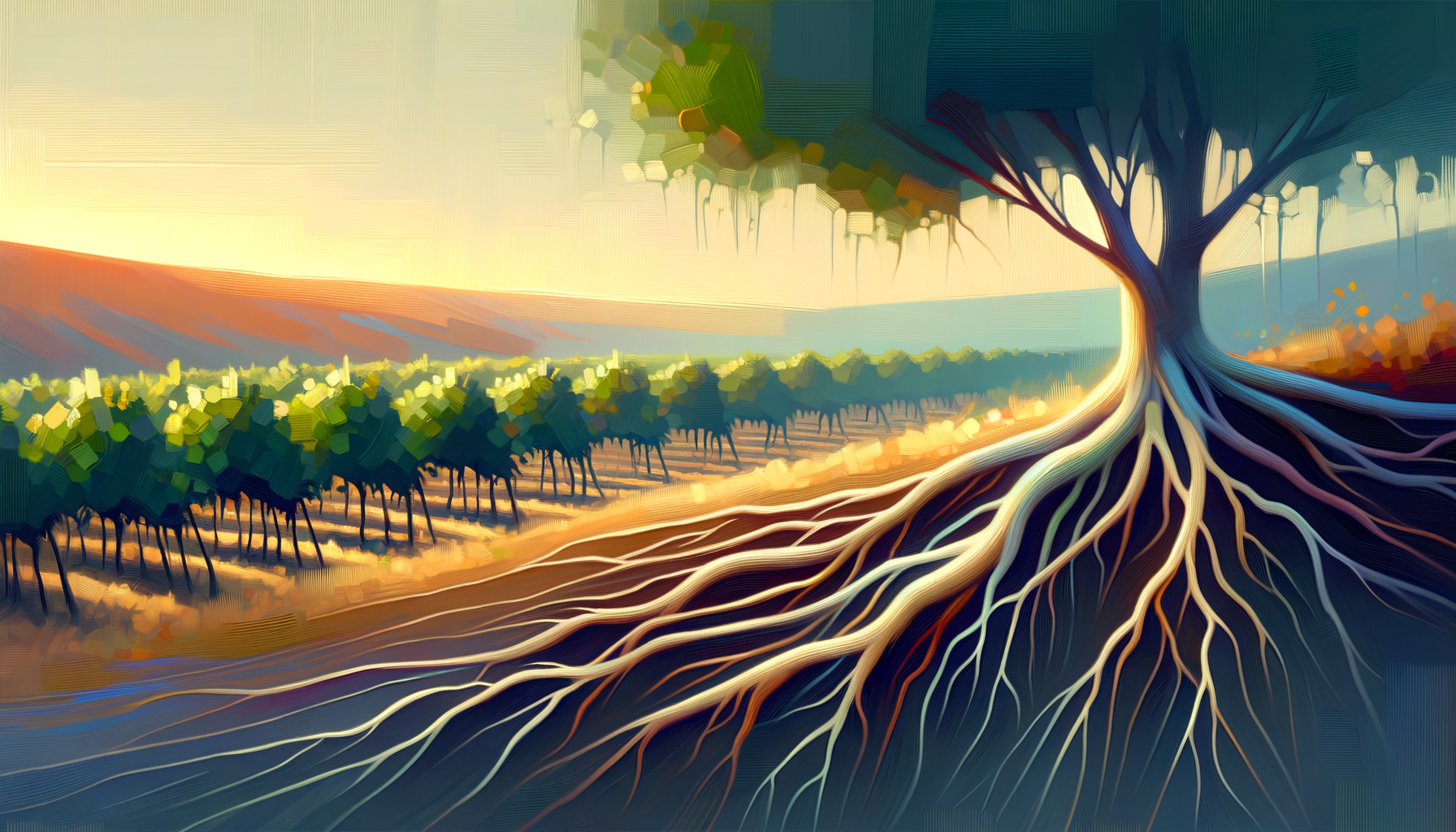I grew up in Napa Valley, a place so idyllic it feels plucked from a romantic comedy starring Diane Lane. Lush vineyards roll across the horizon, farm-to-table bistros serve goat cheese salads topped with edible flowers, and people use "terroir" in casual conversation. It’s the kind of place where tourists flock for a taste of The Good Life™. And yet, for all its postcard charm, Napa can feel suffocating when it’s your hometown and not just a weekend getaway.
It’s a love/hate relationship, really. Napa raised me, shaped me, and taught me the language of food and wine, but it’s also the scene of every awkward middle school dance, every high school heartbreak, and every stifling moment when I wondered, “Is there life beyond this valley?” Spoiler: There is—and coming to terms with that duality has been a journey in itself.
If you’ve ever wrestled with your feelings about your hometown, whether it’s a sleepy suburb, a sprawling metropolis, or in my case, America’s vineyard playground, I get it. Let’s pour a metaphorical glass of Sauvignon Blanc and unpack the highs, lows, and bittersweet in-betweens.
The Allure of Familiarity
First, let’s give credit where credit is due. Growing up in Napa feels like being cast in a Hallmark movie, complete with cobblestone streets, farmer’s markets, and a rotating cast of locals who’ve known you since you took your first steps.
Napa taught me to slow down, to savor. I learned every dish has a backstory, every wine a personality. This is the kind of town where sitting at the dinner table is an art form, where debates over tannins are normal dinner conversation, and where two glasses of wine deep, someone always says, “You can really taste the soil.” If romance truly blooms over a shared meal, then my hometown is where I fell in love with texture, flavor, and the quiet intimacy of breaking bread with others.
But familiarity can breed, well, not contempt exactly, but restlessness. Case in point: having your first kiss in a vineyard might sound like a meet-cute moment, but it’s considerably less magical when your mom used to babysit the guy in question. Small towns have memories longer than their wine lists.
The Pressure of Perfection
Here’s the thing no one tells you about living in Napa as a local: It feels like you’re living in split-screen. On one side, there’s the glossy, magazine-worthy version of Napa everyone knows and loves—the Michelin-star dinners, the Elysian backdrops, the constant soundtrack of clinking glasses. On the other, there’s the reality of struggling to carve out space when perfection feels unattainable.
In love and in life, hometowns can set an impossibly high bar. I grew up surrounded by romance at its most performative—wedding proposals over charcuterie boards, anniversary dinners under fairy lights, couples who gazed lovingly at each other, framed by Tuscan-style vistas. It’s enough to make you wonder: Am I supposed to serve cheese soufflé on a first date? Is a date even serious if no one decants anything?
Dating while home for the summer felt like participating in Napa’s absurdly high production value. A guy once asked if I wanted a casual picnic with wine pairings—and brought four courses he’d cooked himself. Lovely? Sure. But at 19, I didn’t understand that expectations like this can lead to a pressure cooker of insecurities, not a fairy-tale ending. Sometimes, you just want burgers and fries without wondering if they pair better with a Malbec or a Merlot.
Leaving (and Looking Back)
Leaving Napa for college—then for a semester in France, land of baguettes and existential crises—was an act of rebellion in its most subtle form. To everyone else, studying wine culture in another country was very on-brand. But to me, it represented freedom, a breakaway from the vine-entwined safety net of home.
Distance offered perspective. In Napa, I sometimes felt like a side character in other people’s stories. It was always somebody else’s winery opening, somebody else’s big romantic gesture, somebody else’s California dream. Living elsewhere gave me (ironically) the space to plant roots—not in soil, but in myself. Away from the fields that shaped me, I could finally ask: “What do I want out of life? What do I want out of love?”
What I discovered: Leaving doesn’t mean rejecting where you're from. It means learning to embrace it on your own terms. And when I returned to Napa after time abroad, it felt like meeting an old friend I hadn’t fully appreciated before. The quirks I’d once dismissed—how everyone knows everyone, or that breadsticks at an "average" Napa meal are better than anything I ate in most French grocery stores—started to feel like belonging rather than boredom.
Home is a Relationship, Too
Your hometown isn’t just geography; it’s a relationship. Like any relationship, it’s complicated, layered, and prone to melodramatic misunderstandings. And, much like that high school crush who ghosted you after prom (yes, Eric, I’m still bringing this up), it’s easy to romanticize or resent it, depending on your mood.
But there’s beauty in finding balance. Napa taught me romance doesn’t have to mean a candlelit vineyard proposal; it can be a quiet night cooking with a partner in your tiny studio apartment. It showed me that roots run deep, but so do aspirations. And becoming okay with where you’re from is often what gives you the confidence to explore other places.
For anyone struggling with their love/hate feelings about home, here’s my advice:
- Find the flavor of your nostalgia. What did your hometown teach you about connection? Maybe it’s the way small-town diners felt like family kitchens or the creativity you had to foster to stand out in a bustling city. Use those lessons to strengthen your relationships.
- Acknowledge what you’ve grown out of—but don’t shame it. Napa’s picture-perfect reputation was a double-edged sword, but I’ve learned to appreciate its beauty without feeling trapped by its expectations.
- Redefine romance on your own terms. I’m no longer intimidated by the staged splendor of a winery dinner date. What matters isn’t if the moment is Pinterest-worthy; it’s whether it feels like you.
You Can (Sort of) Go Home Again
I have a better relationship with Napa now that I know I don’t have to stay forever. It’s where I go for family dinners, familiar faces, and hikes that smell faintly of wild thyme. But it’s also the place I can leave when I need to clear my head.
Home, like love, isn’t about perfection. It’s about whether you want to keep showing up, ten years later, five heartbreaks in, and still find joy in the old rituals. For me, Napa is that eternal relationship: neither wholly perfect nor completely solvable, but always worth raising a glass to. Cheers to that.




















